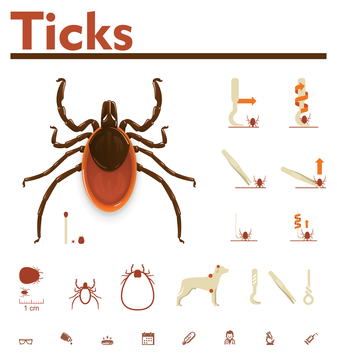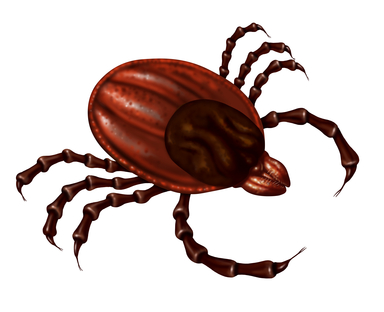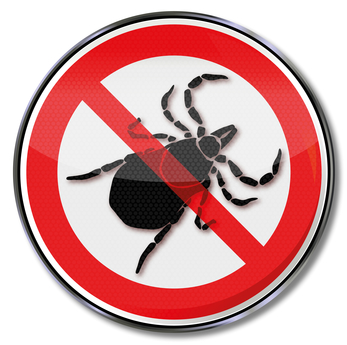Current Facts and Developments About Ticks and Related Illnesses
Even as we continue to deal with the health risks presented by Covid-19, we can’t afford to overlook other illnesses. For instance, we need to be on the lookout for tick-borne illnesses. This is particularly important because the symptoms associated with tick-related illnesses could be mistaken for Covid-19 as we shall see later in this post. However, there are other noteworthy things we shall consider in this post.
Tick-Prevalent States

According to the data from CDC, there are states that are riskier than others. Maryland is the third from the top meaning you need to be extra careful about ticks in your yard and nature trails.
The Centers for Disease Control and Prevention is stressing the need to protect against such potentially dangerous pests after more than 640,000 tick- and other vector-borne disease cases were reported in the U.S. and American territories between 2004 and 2016, according to a recent report from the agency. Presented another way: Disease cases from tick, mosquito and flea bites tripled in the U.S. over that time…
Ticks, a type of arachnid, can thrive in grassy or wooded areas, and can live on animals. Doctors often can treat tick-borne illnesses more effectively when caught early, so the CDC suggests seeking medical attention if symptoms like a rash or lesion arise. The agency also urges people to shower after returning from the outdoors and to perform tick checks if coming back from a tick-infested area. If a tick is found on your body, remove it as quickly as possible using tweezers. Read more at US News
This shouldn’t be a reason to get into a scare. By the end of this post, you’ll know just what to do to protect your family and pets.
The Lizard & Tick Puzzle

Research has shown that ticks are more lethal when they have their blood meals on mammals. In fact, they may even not transmit any tick-borne illness to you if they bite you after they were on a reptile.
Lyme disease is one of the most devastating tick-borne infections in the United States, affecting more than 300,000 people each year. It’s also one of the most mysterious: The creature that spreads it—the black-legged tick—lives throughout the country. Yet the northeastern United States is home to far more cases than anywhere else. Now, researchers have identified an unexpected reason: lizards.
Black-legged ticks (Ixodes scapularis), also known as deer ticks, carry corkscrew-shaped bacteria that cause Lyme disease. The ticks pick up the pathogens—spirochetes that belong to the genus Borrelia—when they suck the blood of animals like mice, deer, and lizards. In the next stage of their life cycle, the ticks may latch onto an unlucky human. But every host transmits the microbes differently. Reptiles are worse transmitters than mammals, so ticks that have lived on reptiles are less likely to make people sick. Read more at Science Mag
Inviting lizards to your yard may prove to be a tick-borne illness prevention strategy!
Ticks and Covid-19

The dreaded symptoms of covid are quite similar to those of anaplasmosis. So, before you get into a panic thinking that you’ve caught the novel coronavirus, you may need to be check if you’ve had a tick bite.
It’s important to note the differences between COVID-19 and anaplasmosis, according to Dr. Paige Armstrong, who leads the U.S. Public Health Service epidemiology team of the Rickettsial Zoonoses Branch. Early treatment is recommended, especially when trying to distinguish the two diseases.
Armstrong says that COVID-19 can come with losing the sense of taste or smell and congestion, which is not found in anaplasmosis. It is uncommon, but anaplasmosis can cause respiratory problems such as shortness of breath and coughing, says Armstrong.
Armstrong says to see a health care provider immediately if signs of fever, headache, muscle aches, or fatigue are present. It is also important to let the health care provider know of any recent tick bites. Read more at USA Today
Acquiring the right knowledge is the first step toward having a healthy life. Moreover, you can go the extra mile to keep your family safe from these harmful effects of ticks. Apart from keeping lizards, call the Backyard Bug Patrol for a comprehensive tick control plan in your yard. Then you can relax knowing that you’ve done your due diligence in ensuring your home is tick-free!
